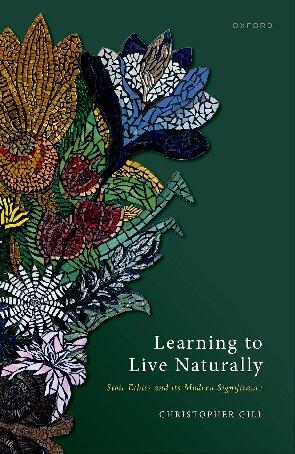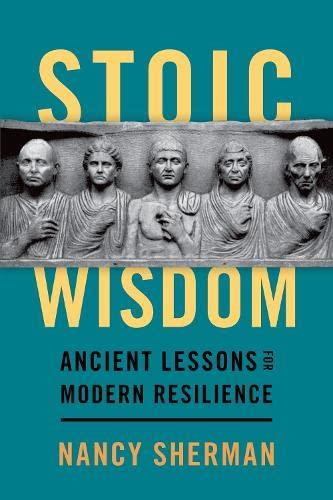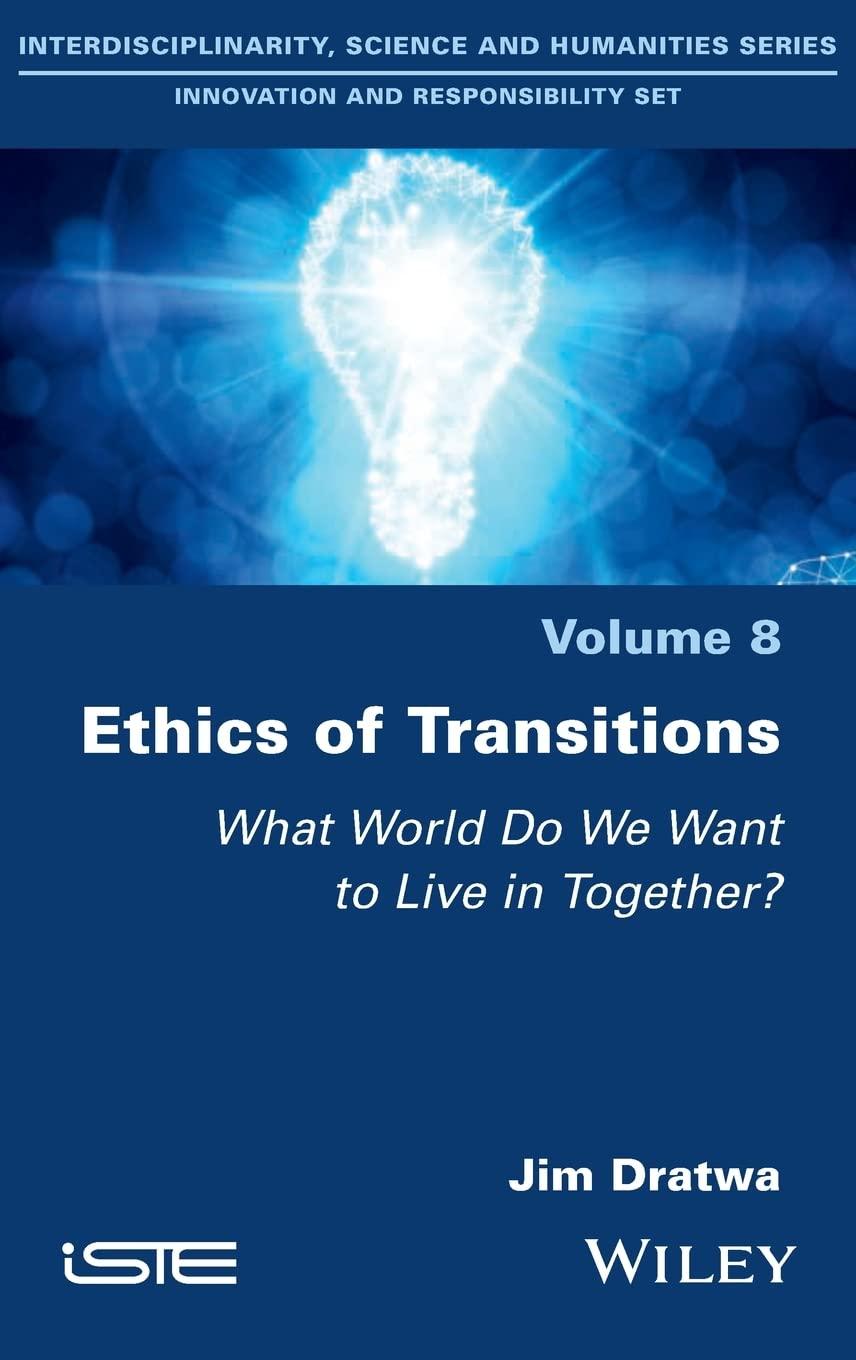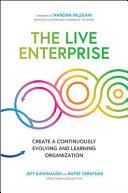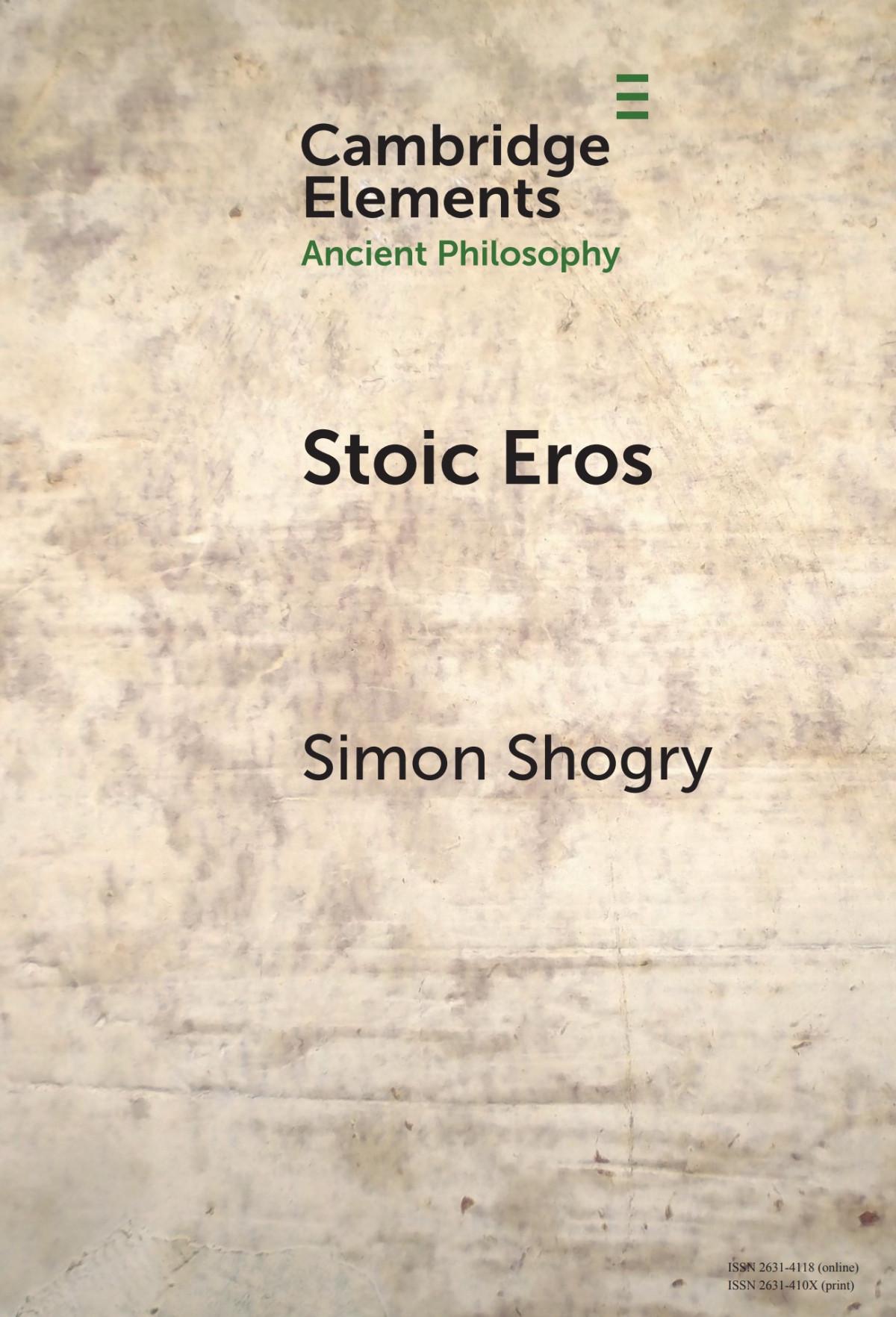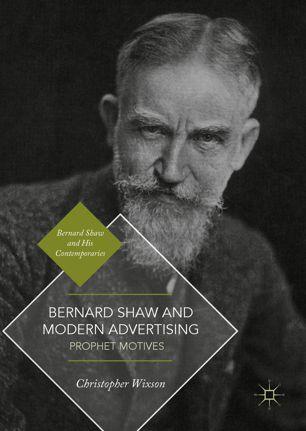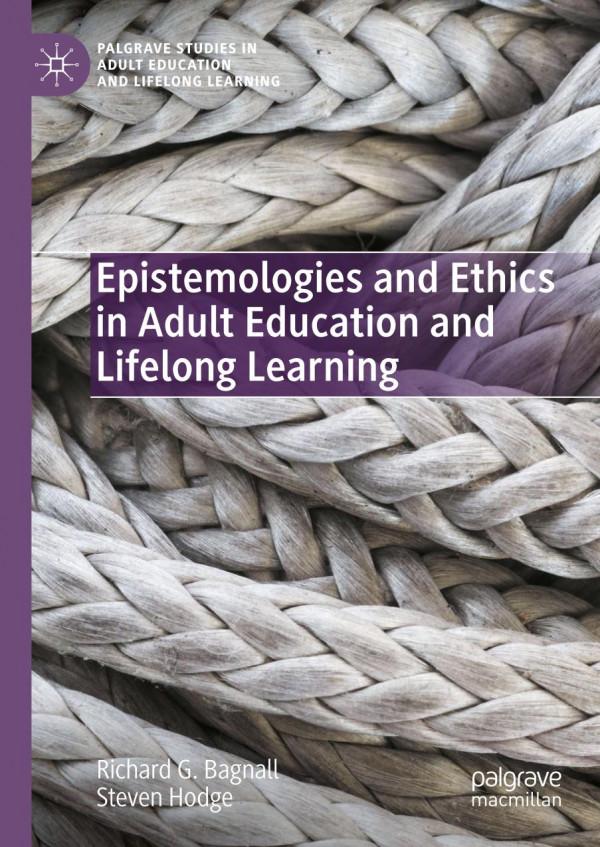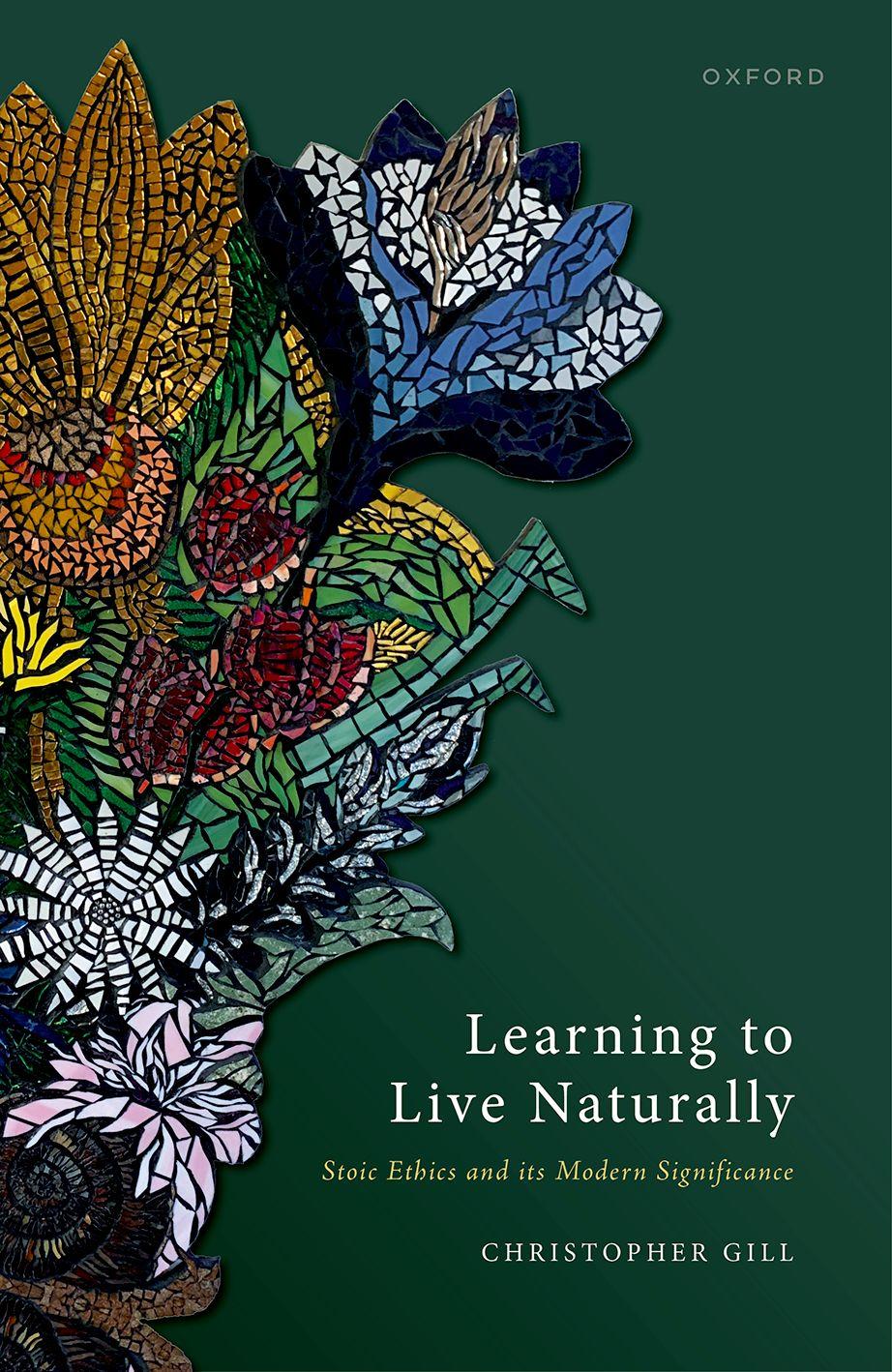LearningtoLive Naturally
StoicEthicsanditsModernSignificance
CHRISTOPHERGILL
GreatClarendonStreet,Oxford,OX26DP, UnitedKingdom
OxfordUniversityPressisadepartmentoftheUniversityofOxford. ItfurtherstheUniversity’sobjectiveofexcellenceinresearch,scholarship, andeducationbypublishingworldwide.Oxfordisaregisteredtrademarkof OxfordUniversityPressintheUKandincertainothercountries
©ChristopherGill2022
Themoralrightsoftheauthorhavebeenasserted FirstEditionpublishedin2022
Impression:1
Allrightsreserved.Nopartofthispublicationmaybereproduced,storedin aretrievalsystem,ortransmitted,inanyformorbyanymeans,withoutthe priorpermissioninwritingofOxfordUniversityPress,orasexpresslypermitted bylaw,bylicenceorundertermsagreedwiththeappropriatereprographics rightsorganization.Enquiriesconcerningreproductionoutsidethescopeofthe aboveshouldbesenttotheRightsDepartment,OxfordUniversityPress,atthe addressabove
Youmustnotcirculatethisworkinanyotherform andyoumustimposethissameconditiononanyacquirer
PublishedintheUnitedStatesofAmericabyOxfordUniversityPress 198MadisonAvenue,NewYork,NY10016,UnitedStatesofAmerica
BritishLibraryCataloguinginPublicationData Dataavailable
LibraryofCongressControlNumber:2022941735
ISBN978–0–19–886616–9
DOI:10.1093/oso/9780198866169.001.0001
PrintedandboundintheUKby ClaysLtd,ElcografS.p.A.
LinkstothirdpartywebsitesareprovidedbyOxfordingoodfaithand forinformationonly.Oxforddisclaimsanyresponsibilityforthematerials containedinanythirdpartywebsitereferencedinthiswork.
Tomyfoursons,theirpartnersandchildren.
Toallthosescholars,students,and ‘modernStoics’ withwhomIhavediscussed StoicideasandfromwhomIhavelearntsomuch.
I.LIVINGNATURALLY
1.VirtueandHappiness 15
1.1Preliminaries15
1.2StoicIdeasinTheirGreekPhilosophicalContext15
1.3HappinessastheLifeAccordingtoNature26
1.4VirtueasExpertiseinLeadingaHappyLife34
2.Virtue,Indifferents,andPracticalDeliberation 53
2.1Preliminaries53
2.2TheVirtue-IndifferentsRelationship54
2.3TheVirtue-IndifferentsRelationshipRe-Examined62
2.4PracticalDeliberation:Cicero, OnDuties 172
2.5PracticalDeliberation:Cicero, OnDuties 2‒387
3.EthicsandNature 102
3.1Preliminaries102
3.2ScholarlyDebateaboutEthicsandNature102
3.3ThePresentationofEthicsintheThreeAncientSummaries111
3.4IsStoicTheologyFoundationalforEthics?121
3.5HarmonizingwithUniversalNature:ThreeVersions133
II.LEARNINGTOLIVENATURALLY
4. ‘Appropriation’:EthicalDevelopmentasNatural 163
4.1TheTheoryofAppropriation163
4.2BasicMotives167
4.3RationalAppropriation:AlternativePatterns173
4.4RationalAppropriationofOneself(Cicero, OnEnds 3.20‒2)181
4.5RationalAppropriationofOthers(Cicero, OnEnds 3.62‒8)193
4.6CiceroandStoicSocialIdeals204
5.EmotionalDevelopment 211
5.1EmotionalandEthicalDevelopment211
5.2EmotionalandSocialDevelopment226
5.3StoicDetachment?237
III.STOICETHICSANDMODERNMORALTHEORY
6.StoicismandModernVirtueEthics
6.1StoicEthicsandtheModernPhilosophicalContext249
6.2TheVirtue-HappinessRelationship260
6.3ActingVirtuouslyforItsOwnSake268
6.4Self-OtherRelationships273
7.StoicEthics,HumanNature,andtheEnvironment
7.1HumanNatureinModernVirtueEthics279
7.2StoicismandModernEthicalNaturalism285
7.3StoicismandEnvironmentalisminModernVirtueEthics292
7.4TheStoicWorldviewandModernEnvironmentalEthics299
8.StoicDevelopmentandGuidance,andModernThought
8.1StoicIdeasandModernVirtueEthics307
8.2StoicismandModern
Preface
AsexplainedintheIntroduction,thisbookoffersareadingofkeydistinctive themesinStoicethicsandexplorestheirsignificanceformodernthought,especially contemporaryvirtueethics.AlthoughIhavebeenworkingonStoicphilosophyfor sometime,thisprojectisanewoneforme,initsobjectivesandscope;however, therearesomesalientpointsofconnectionwithmypreviouswritings.Thebook drawsonalongstandinginterestintheinterfacebetweenancientethicsand psychology,aswellastherelationshipbetweenancientandmodernideas,includingethicalones.Also,myinterpretationofStoicethicsunderlinestheimportance giventointerpersonalandsocialengagement,anaspectofStoicismsometimes overlooked.ThisemphasisreflectstheweightIhaveelsewheregiventothis dimensionofGreekandRomanthoughtanditssignificanceformodernthought. Ihavesometimespresentedthisdimensionastheideaof ‘theselfindialogue’ or the ‘objective-participant’ conceptionofpersonality.
Duringtheperiodofworkonthisbook,Ihavebecomecloselyinvolvedinthe publicpresentationofStoicideasforabroadaudiencethroughaproject(‘Modern Stoicism’)outlinedattheendofChapter8.Itisstrikingandpositivetoseehow muchresonanceStoicideashaveforsomanypeopleatpresent.Thisbookisnot framedaslife-guidanceforageneralaudience;itisasustainedacademicstudyof Stoicethicsanditsimplications,especiallyformodernmoralphilosophy. However,IhavesetouttoexploreindepththeStoicethicalideasonwhich contemporarylife-guidanceisbased.Also,Ihaveaimedtoconveythisexploration inclear,non-technicallanguage,andtosupportmyinterpretationbyextensive referencetotheancientevidence,withquotationsinEnglishtranslation.SoIhope thebookwillbeaccessibleandusefultosomeofthosewhoseprimaryconcernis withStoicismaslife-guidance,aswellastoscholarsandstudentsofancientand modernphilosophy,andothertypesofreaderdrawntothetopic.PartIIofthe book,especiallyChapters5,7,and8maybeofmostinteresttosuchreaders.
Likeanyoneworkinginthisarea,Ihavebenefitedgreatlyfromtheupsurgeof researchandscholarlypublicationonStoicisminrecentdecades.Also,compositionofthebookwassubstantiallyhelpedbyaLeverhulmeEmeritusFellowship (2014‒2016).Thisawardenabledmetoorganizeinautumn2016apairoftwodayworkshops,atYaleandCambridge,inwhichgroupsofscholarsdiscusseda firstdraftofpartsofthebook(about60,000words).Participantsincluded,atYale, JuliaAnnas,DavidCharles,StephenDarwall,VerityHarte,BradInwood,Daniel Russell,andKatjaVogt,aswellasseveralgraduatestudents.AtCambridge,the participantsconsistedofGáborBetegh,RaeLangton,M.M.McCabe,Onora
O’Neill,MalcolmSchofield,DavidSedley,andRaphaelWoolf.Thisprovidedan exceptional,andhighlyvaluable,opportunitytohavedetailed,expert,comments atastageinthecompositionofthebookwhenIcouldtakefullaccountofthese responses,andbothworkshopshavemadeamaterialdifferencetomyapproach andpresentation.Iamextremelygratefultoallthosewhogavetheirtimeand attentiontothebookinthisway,andespeciallytoBradInwoodandGábor Betegh,whohelpedmetoorganizetheworkshops.Inaddition,JuliaAnnasand BradInwoodkindlycommentedonsubsequentdraftsofcertainchapters.Iwould alsoliketothankanonymousreadersforthePress,whoreviewedthebookat preliminaryand finalstages,fortheirconstructiveandperceptiveobservations. IamverygratefultoPeterMomtchiloffforhisadviceandsupport,andallthosein thePresswhohavehelpedthebookthroughthestagesofproduction.
Allscholarlyresearchconstitutesakindofdialoguebetweenoneselfandothers exploringthematerial,andIamdeeplyconsciousoflearningmuchonStoicethics fromfellow-scholarsaswellasstudentsandthosewithwhom,inrecentyears, Ihavebeenengagedinmodern(applied)Stoicism.Mylifehasalsobeenenriched immeasurablybylovinginvolvementinthelivesofmyfoursons,theirpartners, andtheirchildren.Thebookisdedicatedtoboththesegroups.
Introduction
Aims
InthisbookIhavetwomainaims.Inthe firsttwoparts,Iofferareadingofcore distinctivethemesinStoicethics,centredontheideaofhappinessasthelife accordingtonatureandonethicaldevelopmentaslearningtolivethiskindoflife. Inthethirdpart,IsuggestthatStoicethicshasmoretocontributetomodern moraltheory,especiallyinvirtueethics,thanithasdonesofar.Thesetwoaimsare closelyinterconnected.MyaccountofStoicethicsisdesignedtobringoutits coherenceandstrengths,asIseethem,whicharelinkedwith(butnotlimitedto) itscoherence.Thecombinationofthecoherenceandstrengthsunderliethemain claimofthe finalchapters,thatStoicismcanserveasanespeciallyvaluable contributortomodernvirtueethics,asasupplementoralternativetothestandard ancientprototype,Aristotle.
Ibeginbyageneralstatementoftheseclaims,whichareexplainedfurtherin thefollowingoutlineofchapters.IseeStoicethicsasacoherentcombinationofan innovativetheoryofvaluewithacredibleconceptionofnature,bothhumanand universal,andofethicaldevelopmentoreducation.TheStoictheoryofvalueis ethicallyrigorousinseeingvirtueasthesolebasisforhappiness,ascontrasted withthemainancientalternative,thathappinessisbasedonacombinationof virtueandotherkindsofgoodthings.However,thisethicalrigourisexplained, andjustified,inthreemainways.Itisjustified,intermsofvaluetheory,bythe distinctionbetweenthespecialvalue(goodness)ofvirtueandthevalueofother thingsnormallyregardedasgood,whichtheStoicscall ‘indifferents’.Thisis linked,inturn,withaconceptionofvirtueasexpertiseinselectingbetween indifferentsandinleadingahappylife.Thisvaluetheoryisfurthersupported byreferencetoideasofnatureandethicaldevelopment.Bothvirtueandhappiness areanalysedasexpressingnatureatitsbest,eitherhumanoruniversal(thatofthe worldoruniverse)orboth.Thissupportstheclaimthatvirtueconstitutesthesole basisforhappiness.Stoicvaluetheoryisalsocloselylinkedwith,andsupported by,itsaccountofethicaldevelopment,themaindistinctivefeaturesofwhichare theideasof ‘appropriation’ (oikeiōsis)andemotionaldevelopment(or ‘therapy’). Thetheoryofdevelopmentcentresontheideasthatthemovementtowardsvirtue andvirtue-basedhappinessformsanintegralpartofalifeexpressinghuman(or universal)natureatitsbestandalsothatthecapacitytodevelopinthiswayfalls withinthescopeofallhumanbeings.Afurther,correlated,featureofStoicethical
theoryisstressonthesocialandother-benefittingdimensionsofhumanlife.This isconveyedespeciallyintheideasthathumanbeingsareconstitutivelyrational andsociableandthatthemotivetocareforothersisaprimary,in-builtmotive alongsidethemotivetocareforoneself.
Inalltheserespects,IseetheStoicethicaltheorybothasexceptionallycoherent, andasstrong,initscombinationofarigorousethicaltheorywithacredibleform ofnaturalismandapproachtoethicaldevelopment.Thisinterpretation,setoutin the firsttwopartsofthebook,formsthebasisfortheclaim,inthethirdpart,that Stoicethicshasaspecial,andsofarnotfullyrealized,contributiontomaketo modernmoraltheory,especiallyinvirtueethics.
Moreprecisely,Stoicismcancontributemosteffectivelytothecombination sometimesfoundinmoderntheory,ofvirtueethics,eudaimonism,andethical naturalism.Aristotlehasservedasthemainancientmodelforthiskindofmodern theory.However,Iarguethat,evenifoneassumesabroadlyAristoteliantheoreticalframework,Stoicismoffersastrongerandmoreinternallycoherentversion ofthisframework.TheStoicapproachavoidstheinternaltensionsorproblems thatariseinAristotle’sthinkingabouttherelativecontributionofvirtueandother goodstohappinessandabouttherelationbetweenthepracticalandtheoretical dimensionsofahappylife.Asaresult,Stoicismoffersamorecoherentparadigm forthevirtue-happinessrelationship.Inparticular,itprovidesabetterframework foraccommodatingtwo,seeminglycompetingideas,thatvirtueisintrinsically valuableandthathappinessistheoverallgoaloflife.Thecombinationofthese twoideasisseenasdesirableincertainstrandsofmodern,aswellasancient, ethicaltheory.Stoicismalsooffersanapproachtoself-otherrelations(notablyin theideathatcareforothersisaprimaryhumanmotive)thatoffersaneffective defenceagainstthecriticismthateudaimonisticvirtueethicsisinherentlyegoistic.
Further,IarguethatStoicethicalideasabouthumanandcosmicnaturecan enhancemodernthinking(especiallyinmodernvirtueethics)onhumannature andtheenvironment.StoicandAristotelianethicsconvergeinpresentingvirtue orhappinessastherealizationofhumannatureatitsbest.However,Stoicism,by linkinghumanvirtueandhappinesswithuniversalnature,providesideaswhich canbeusedtosupportmodernenvironmentalethics,especiallyregardingour responsetoclimatebreakdown.Finally,IsuggestthatStoicthinkingondevelopmentandguidancehasadistinctiveandimportantcontributiontomaketo modernthinkingonthesesubjects.Stoicismcaninformmodernvirtueethical theoryonthesesubjectsinwaysthatgobeyondAristotle.Also,therecentupsurge ofmodern ‘life-guidance’ booksandcoursesbasedonStoicismandthepositive publicresponsetothesebringoutthecontinuingresonanceformodernaudiences ofStoicethicalideas.
Howdoesthisbookrelatetoitsbroaderscholarlycontext?Theincreaseof researchandpublicationonHellenisticphilosophyinrecentdecades,especially Stoicism,hasgreatlyenhancedourunderstandingofStoicethics.Evenso,there
areratherfewspecializedbook-lengthstudiesofStoicethics,takenasawhole,in English;andsomeofthesehaveratherspeci ficconcerns.¹Hence,afurtheraimof thisbookistopresent,forarelativelybroadreadership,thecoreconceptsofStoic ethicsandtheirrelationshiptoeachother,andtodisplaytheevidenceonwhich anygeneralaccountofStoicethicsisbased.Thisbook,inits firsttwosections, discussesallthemainethicaltopicsrecognizedinancientsummaries(virtue, happinessorthegoaloflife,indifferents,appropriateactions,appropriation, emotions),alongwith ‘nature’,animportantidea,thoughnotadistincttopic,in Stoicethics.²ItalsoexplorestheinterplaybetweentheseconceptswithinStoic ethicsasawhole,and,atcertainpoints,connectionsbetweenethicsandother branchesofknowledge,especiallytheology(partofStoicphysics).Aswellas buildingonpreviousscholarlywork,Isometimesrefertoareasofscholarly debate,forinstanceontheroleofcosmicnatureinethics.However,ingeneral, Ihavebeenrathersparinginscholarlyreferences,andhaveconcentratedon offeringmyowninterpretationoftheevidenceandbringingoutwhatIseeas themainstrengthsoftheStoicframework.³
Inthethirdpartofthebook,IarguethatStoicethicsoffersanalternative,or better,ancientprototype(comparedwithAristotelianethics)formodernvirtue ethics;andthisargumentisinnovativeinitsoverallcharacter.⁴ However,my discussioninChapter6buildsonphilosophicallyinformeddiscussionsoftherival meritsoftheStoicandAristotelianethicalpositionsbyscholarssuchasJulia AnnasandTerryIrwin.AfurthersuggestiveparallelisDanielRussell’ scomparativeassessmentofthecompetingstrengthsofStoicandAristotelianconceptsof happiness,viewedaspotentialcontributorstomodern(virtueethical)ideasof happiness.⁵ ThediscussionofChapter7,centredonStoicandmodernideasabout humannatureandthenaturalenvironment,breakslargelynewground.Sotoo,in adifferentway,doesthetreatmentinChapter8ofStoicthinkingonethical developmentandguidanceandmoderntheoryandpractice.Overall,theaimof thispartofthebookistogiveStoicethicsanewprominenceinmodern theoreticaldebate.
Ihavedescribedmydiscussionasa ‘reading’ or ‘interpretation’ ofStoicethics: whypresentitinthisway?WhydoInotjustsummarizeStoictheory,offera
¹Brennan2005andJedan2009offerrelativelycomprehensiveaccountsofStoicethics,though Brennanalsotreatspsychologyandfate;Jedanfocusesonvirtue,appropriateactions,andthereligious dimensionofStoicethics.Inwood1985iscentredontherelationshipbetweenethicsandactiontheory. InwoodandDonini1999provideauseful(book-chapter)overview;Annas1993containsvaluable discussionofStoicethicalthemes,asdoesLong1996.OnBecker1998/2017,seen.4;forbooksonStoic ethicsandlife-guidance,seeCh.8,n.91.
²SeeLongandSedley1987(=LS)56A(D.L.7.84);alsoSchofield2003:237–8.
³AfulltreatmentofalltopicsofscholarlycontroversyinStoicethicswouldhavemadethisbook muchlongerandlessgenerallyaccessible.
⁴ Becker1998/2017alsoaimstopresentStoicethics(oratleastamodernizedversionofthis)asa prototypeforvirtueethics;seeCh.6,texttonn.20–2.
⁵ SeeAnnas1993:chs.19–21;Irwin2007:ch.13(also1986);Russell2012.
‘ consensus ’ scholarlyaccount,andthengoonconsidermorecomplexquestions suchastherelationshiptomodernethicaltheory?Doingsoisnotasstraightforwardasitmightseem.ForanyoneworkingonStoicethics,aratherpressing questionarises: whereisit? ThetreatisesoftheHellenisticStoics,onethicsand othersubjects,arelost,exceptforlaterquotationsandreferences.⁶ Forour knowledgeoftheirideas,wearelargelyreliantonthreesummariesofStoicethical theory,takenfromCicero,DiogenesLaertius,andStobaeus(thelatterapparently basedonAriusDidymus).⁷ ThoughcomposedlaterthantheHellenisticera,these summariespresentthemselvesas,andaregenerallytakentobe,reliableaccounts oftheideasdevelopedbyaseriesofStoicthinkersfromthefounderZeno onwards,especiallythoseofChrysippus,themajortheoristandsystematizerof thetheory.⁸ Thesesummaries,alongwithdiscussions,sometimescritical,byother ancientthinkers,representourcoreevidenceforStoicethics.⁹ Inaddition,there aresurvivingcompleteworksorpartsofworksfromthelateRomanRepublicand Imperialperiod,whichpresentStoicethicaltheoriesandrelatedtopics,including theology.ThemainrelevantauthorsorthinkersareCicero,whowasnotaStoic butahighlyinformedpresenteroftheirideas,andSeneca,aprolificStoicauthor writinginanumberofgenres.Inaddition,wehavereportsofethicaldiscussions byEpictetusandthephilosophicalnotebookoftheemperorMarcusAurelius.¹⁰ Giventhenatureofourevidence,anyaccountofStoicethics,oranyother aspectoftheirtheory,inevitably,involvesreconstructionandinterpretation. Asubsidiaryaimofthisbookistobringouttheexploratorynatureofthisprocess ofreconstruction.¹¹Somescholarlytreatmentsarepresentedasaccountsof ‘early ’ or ‘old’ Stoictheory,generallymeaningtheideasofthe firstthreeheadsofthe school,Zeno,Cleanthes,andChrysippus,insofarasthesecanbesecurely identified.¹²Also,some(especiallyearlier)scholarship,subdividesStoicism,like otherancienttheories,into ‘early’ , ‘middle ’,and ‘late’ periods,althoughthis subdivisionisnotmadeinancientsources.Itooamespeciallyinterestedin reconstructingStoicethicaltheoryintheHellenisticera,especiallythatof Chrysippus,andItakeasthecoreevidenceforthistheorythethreesummaries
⁶ SeeMansfeld1999a,3–13.
⁷ Cicero, OnEnds (DeFinibus)(Fin.)3;DiogenesLaertius7.84–131;Stobaeus Anthology 2.5–12, generallythoughttobebasedonanaccountbyAriusDidymus,andoftenreferredtoasthesummaryof AriusDidymus;apartfromCicero,allthosementionedarewritersofhandbooks.Onthesesummaries see3.3.
⁸ SeeSchofield2003:236–9;onStobaeus,seeLong1996:ch.5.
⁹ ForthemainancientsourcesinEnglishtranslation,seeLSvol.1,sections56–67(withcommentary);InwoodandGerson2008(=IG):113–76;alsoInwoodandGerson1997:190–260.Themost completecollectionofGreekandRomansourcesisvonArnim1903–5(SVF).
¹⁰ OnCicero,seePowell1995;Woolf2015;Schofield2021(politicalphilosophy);onSeneca,Inwood 2005;onEpictetus,Long2002;onMarcusAurelius,Gill2013a:introduction;Sellars2021.Forextracts onethicsfromlaterStoics,seeInwoodandGerson2008:177–205.
¹¹Seeesp.1.3andCh.3.
¹²Onmainthinkersanddates(alsoperiodsreferredto),see ‘Conventions’,p.xii.Onthehistoryof Stoicphilosophy,seeSedley2003andGill2003.
ofethicaldoctrines.However,mysubjecthereis ‘Stoicism’,andnotspecifically ‘earlyStoicism’;andIdrawextensivelyontheevidenceofCiceroand,toalesser extent,theImperialStoicthinkers,wherethisseemstobeconsistentwithprevious Stoicthought.ImakefulleruseofCicero’ s OnDuties thanisoftendone,aswellas Cicero’ssummaryofethicaldoctrinesin OnEnds 3,and,fortheology, Onthe NatureoftheGods 2,whicharenormallyregardedasgoodevidenceforStoic thought.¹³Ingeneral,andespeciallyforreaderswhosemaininterestismodern ethics,thesediscussionsofCiceroofferavaluablepointofaccesstoStoicethics. Theyprovidecontinuousexpositionandanalysisandnotjusthandbooksummary;andtheycorrelatethedistinctivefeaturesofStoicthought,asCicerosees them,withotherancienttheories.Tosomeextent,theseworks,alongwiththose ofSeneca,compensatemodernreadersforthelossofHellenistictreatises,and offermaterialthatcanbecomparedwiththemorereadilyavailablewritingsof PlatoandAristotle.
Atvariouspointsinmybook,IjuxtaposeStoicethicalthoughttothatof Aristotle,especiallythe NicomacheanEthics,hisbest-knownethicalwork.The questionhowfarStoicthinkershaddetailedknowledgeofAristotle’sschool-texts, whichwedescribeashis ‘works’,isarathercomplexone.Someevidencesuggests thattheseschool-textsweregenerallynotavailablethroughoutmuchofthe Hellenisticperiod.¹⁴ However,itislikelythatStoicthinkersinthisperiodhada broadknowledgeofhismainideas,although,giventhenatureofoursourcesfor Stoicism,specifyingtheextentoftheirknowledgeisnoteasy.Inanycase,my concernhereisnotwithidentifyingStoicresponsestoAristotlebutwithcomparingandcontrastingStoicandAristotelianideas,especially(inChapters6–7), consideredasancientprototypesformodernvirtueethics.ThetextsofPlatowere widelyavailablethroughouttheHellenisticandImperialperiods.However,my focushere,again,isoncorrelationofStoicandPlatonicideasandnotStoic responsestoPlatonic(orSocratic)thought.¹⁵
OutlineofChapters
Thebookissubdividedintothreeparts,thoughthesearecloselyinterconnected. Inthe firstpart(‘LivingNaturally’),Idiscuss,inthe firsttwochapters,whathave beenseen,sinceantiquity,ascentralStoicethicalclaims,regardingvirtue,happiness,and ‘indifferents’,andinthethirdchapter,anothermajorthemeofStoic ethics,theroleofnature.Inthesecondpart(‘LearningtoLiveNaturally’),
¹³OnCic. Fin.3,seeesp.Ch.4;onCic. Off.,seeCh.2(also4.3);onCic. N.D. 2,see1.3,3.4.
¹⁴ SeeBarnes1997:Nielsen2012;alsoSedley2003:12;andGill2006:20–2.
¹⁵ OnStoicresponsestoSocrates,seeLong1996:ch.1;onStoicresponsestoPlato,seeA.G.Long 2013a.
IdiscussStoicthinkingonethicaldevelopment,precededbyanIntroductionto PartII,ondistinctivefeaturesoftheStoicapproachtothissubject.Ifocusonthe theoryofdevelopmentas ‘appropriation’ (oikeiōsis)inChapter4,andonemotionaldevelopmentandthe ‘therapy’ ofemotionsinChapter5.Thethirdpartof thebook(‘StoicEthicsandModernMoralTheory’)exploresthesignificanceof theStoicideasdiscussedinPartsIandIIforcontemporarymoralphilosophy, especiallyinvirtueethics.Chapter6iscentredonStoicideasonthevirtuehappinessrelationship,viewedasabasisforengagementwithmodernthinking onthistopic.Chapter7suggestswaysinwhichStoicthinkingonhumanand cosmicnaturecancontributetomoderndebateontheethicalsignificanceofthe ideaofhumannatureandonenvironmentalquestions,notablytheethical responsetoclimatebreakdown.Chapter8discusseswaysinwhichStoicthinking caninformcurrentthinkingonethicaldevelopmentandguidance,andtakesnote ofoneareawhereStoicismhasalreadymadeamajorimpactonmodernthought, namelyin ‘life-guidance’ .
InChapters1and2,IexaminetwocentralanddistinctiveStoicethicalclaims: thatvirtueconstitutesthesolebasisforhappiness,andthatotherthingsnormally regardedasgood,suchashealthandprosperity,are ‘mattersofindifference’ , comparedwithvirtue,thoughtheyhavepositivevalueandarerightlyseenas ‘preferable’.Inconsideringtheseclaims,Ifocus,initially,ontheconceptionof happinessasthelifeaccordingtonature.ForatleastonemajorStoicthinker (Chrysippus),thissignifiesthelifeaccordingtohumananduniversalnature(the lattermeaningnatureasawholeorcosmicnature).Humannatureisoften conceived,inStoictheory,asacombinationofrationalityandsociability. Universalnatureis,typically,characterizedintermsofstructure,order,and wholeness(overall,consistency).Itisalsocharacterized,atthecosmiclevel,in termsoftheexerciseofprovidentialcareforeverythingintheuniverse;atthe humanlevel,thisprovidentialcareisexpressedinthein-builtmotivesofcarefor oneselfandforothersofone’skind.Happiness,orthelifeaccordingtonatureis understood,Isuggest,asalifethatexpressesmostfullythesefeaturesofhuman anduniversalnature.Thisaccountofhappinessrepresentsaninterpretation, ratherthanastandardancientformulation;however,itisbasedonwell-defined andcentralStoicideas,goingbackatleasttoChrysippus(1.3).Thissetofideas underpinsotherimportantaspectsofStoicthinking,includingtheirunderstandingofvirtue,indifferents,andethicaldevelopmentas ‘appropriation’.Thiscomplexofthemesformsthebasisforthenotionof ‘LivingNaturally’ thatIhavetaken asthetitleofthispartofthebook.
VirtueisconceivedinStoicethicsasaformofknowledgeorexpertise,by contrastwithhappiness,whichisseenasaformoflife.However,thisexpertiseis oftencharacterizedintermssimilartothoseofhappiness,namelyasexpressing humannature,understoodasrationalandsociable,oruniversalnature,associated withthethemesofstructure,order,andwholenessandofcareforoneselfand
others.Thestructuralsimilaritybetweentheconceptionsofhappinessandvirtue doesmuchtoexplaintheStoicclaimsthatvirtueconstitutesexpertiseinlivinga happylifeandthatvirtueformsthesolebasisforhappiness(1.4).
InChapter2,Iexamineevidencebothonthevirtue-indifferentsrelationship andonpracticaldeliberation(inStoicterms,performing ‘appropriateactions’). AlthoughStoicthinkingonthevalue-statusofindifferentshassometimesbeen regardedasproblematic,inantiquityandmodernscholarship,Isuggestthatit makesgoodsenseifviewedinthelightofthisframeworkofthinkingaboutvirtue andhappiness.Thingssuchashealthandprosperityarepotentiallypositive factorsinahumanlifeandarenaturally ‘preferred ’ byhumanbeings;butthey donotmakethedifferencebetweenlivingahappylifeornot,asvirtuedoes,and are ‘indifferent’ inthissense.Virtue,ontheotherhand,understoodasexpertisein leadingahappylife(alifeaccordingtonature)doesmakethisdifference.Virtueis conceivedasexpertiseinselectingbetweenindifferentsinawaythatreflectsthe recognitionofthepositiveornegativevalueofindifferentsbutbasestheselection onwhatmakesforthehappylife(2.2–3).IinterpretCicero’ s OnDuties,theonly survivingextendedStoicstudyofpracticaldeliberation,asexpressingthisconceptionoftherelationshipbetweenvirtue,indifferents,appropriateacts,and happiness(2.3–4).Althoughthetypeofdeliberationadvocatedthererecognizes thepositivevalueofpreferableindifferents,themaincriterionofproperlyconducteddeliberationiswhatisright,thatis,inlinewiththevirtues,sometimes combinedwithideasaboutwhatcountsasnatural,meaning,inthiscontext,what isconsistentwithhumannatureatitsbest.Allthreebooksof OnDuties ,in differentways,offerguidanceondevelopingskillinpracticaldeliberationwhich reflectsthisunderstandingoftherelationshipbetweenvirtue,happiness,indifferents,andappropriateactions;inthisway,thisworkoffersagoodillustrationof Stoicthinkingonthesetopics.
Thesetofideasconsideredsofar,especiallytheideaofhappinessasthelife accordingtonature,providesanewpointofaccesstoaquestionmuchdebatedin recentscholarship,theethicalsignificanceoftheideaofnatureinStoicphilosophy.InChapter3,Ireviewthisdebate,re-examinethemainevidence,andoffera partlynewaccount.ScholarshavedisagreedaboutwhetherStoicethicsis groundedontheideaofuniversalnaturepresentedinStoicphysicsorisseenas independentbutsupportedbyideasofnature,bothhumananduniversal.The threeethicalsummaries,ourcoreprimaryevidenceforthistopic,presenttheStoic frameworkinvariousways:inpurelyethicalterms(thoseofvaluetheory)orwith referencetohumannature,universalnature,oracombinationoftheseideas(3.3). Someancientevidenceseemstostatethatethicalprinciplesaregroundedon universalnatureorgodaspresentedinphysics,specifically,theology.However, Isuggestthatthisevidence,takenwiththatforStoictheologygenerally,pointstoa reciprocalrelationshipbetweenthesebranchesofknowledge.Theologyprovides anauthoritativeaccountofthetypesofnaturerelevantforethics,whileethical
theoryisauthoritativeinitsanalysisofthemoralideasdeployedbothinethics andtheology.Thisviewmatchesthecollaborativeorreciprocal(ratherthan hierarchical)relationshipbetweenthebranchesofStoicknowledgesuggestedby otherevidence(3.4).Finally,IexaminetheStoicideaof ‘harmonizing’ yourselfto universalnatureorgod,especiallyinStoicwritingsonpracticalethics.Although, onthefaceofit,thisthemepresupposesthatethicalprinciplesaregroundedon universalnature,Isuggestthattheevidence,morecloselyexamined,pointstoa morecomplex,andmutuallysupporting,relationshipbetweenethicalprinciples anduniversalnatureorgod(3.5).Overall,thisdiscussionillustratesthattheidea ofuniversalnature,alongsidethatofhumannature,playsamajorroleinStoic ethics,butcastsdoubtonthesuppositionthatthisrelationshipisbestcharacterizedintermsof ‘grounding’
Inthesecondpartofthebook(‘LearningtoLiveNaturally’),thefocusmovesto ethicaldevelopment.Aseparateintroductiontothispartexploresintwowaysthe ratherparadoxicalideaof learning tolivenaturally.First,Iexaminethelinks betweenthemaindistinctivefeaturesofStoicthinkingonethicaldevelopment (appropriationandthetherapyofemotions)andtheStoicidealoflivingnaturally (accordingtonature).Second,Iexploreotherwaysinwhich,intheStoicview, ethicaldevelopmentisconceivedasbeingnatural.Theseincludethecapacityofall humanbeingstodevelopethically,todosoatanystageintheirlives,andtodoso inanysocio-politicalorintellectualcontext.Thesefeaturesaredefined,inpart,by contrastwithanalternativeancientpatternfoundinPlatoandAristotle,inwhich ethicaldevelopmentdependsonthecombinationofaspecialkindofinborn nature,socialhabituation,andintellectualeducation.Forpartlyrelatedreasons, theStoicapproachfocusesonethicaldevelopmentwithinadultlife,ratherthanon childhoodandyouthviewedasapreparationforadulthood;italsostressesthe ideaofadultlifeasongoing(uncompleted)progresstowardsvirtueandhappiness. ThesegeneralcharacteristicsofStoicthinkingondevelopmentareillustratedin thetwosubsequentchaptersbywell-knownStoicinnovations:theirtheoriesof ethicaldevelopmentas ‘appropriation’ (oikeiōsis)andofemotionaldevelopment, sometimespresentedasthe ‘therapy’ ofemotions.
Thetheoryofappropriation(Chapter4)iscloselyinterconnectedwith othercentralaspectsoftheirethicalframework,theirideasaboutvirtueand happinessandabouthumananduniversalnature.Whiletakingaccountofthe fullrangeofevidence,IfocusonthatofCicero,in OnEnds 3(16–22,62–8),taken inconjunctionwithrelevantpartsof OnDuties (especially1.11–15,50–9).The processofappropriationissometimessubdividedintotwostrands,leading towardsethicalunderstandingandproperlyconductedrelationships,respectively (forinstance,inCicero, OnEnds 3).Thesetwostrands,takentogether,reflectwhat theStoicsseeassalientcharacteristicsofhumananduniversalnature:rationality andsociability,ontheonehand(marksofhumannature);andcareforoneself andothersofone’skind,ontheotherhand(featureslinkedwithuniversalnature).
The firststrandofappropriationalsoculminatesintheformationofinternal orderandwholeness,anotheridealinkedwithuniversalnature.Thegrowthof ethicalunderstandingisanalysedinwaysthatreflectandsupportStoicthinking ontherelationshipbetweenvirtue,indifferents,andhappiness.Thisstrandof developmentconsistsinacquiringexpertiseinselectingbetweenindifferentsina waythatbringsabouthappinessunderstoodasthelifeaccordingtonature(On Ends 3.20–1;see4.4).Ininterpretingthetheoryofappropriation,Istressthe interplayandinterconnectionsbetweenthesetwostrands,afeaturewhichis particularlyevidentinCicero’ s OnDuties (4.3,4.5).Inthesecond(sociable) strand,Iunderlinethat,inmostsurvivingevidence,thedevelopmentofengagementinspecificandlocalizedrelationshipswithindividualsandone’ sown communityispresentedascompatiblewithrecognizingthefundamentalcommunityofhumankind(4.6).
TheStoictheoryofemotions(Chapter5)hasoftengeneratedcriticism,though itisviewedmorepositivelyinmostrecentscholarship.Itisimportanttointerpret itas,crucially,atheoryofemotionaldevelopment,ifwearetounderstandthe rationaleforthedistinctionbetweenbademotions(or ‘passions’)and ‘good emotions’.Also,thisdimensionofStoicthinkingiscloselyinterconnectedwith thetheoryofappropriation.AlthoughStoicthinkingonemotionaldevelopment (orthetherapyofbademotions)formsadistincttopicinStoicethicalwritings, emotionaldevelopmentisseenasdependentonthetwostrandsthatmakeup appropriation.TheaimoftheStoictherapyofemotionsissometimesseenby scholarsastheproductionofa,fundamentallyegocentric,self-sufficiencythat dependsondetachmentfromotherpeople.Iarguethatthisviewrunscounterto mostStoicevidenceonthissubject,whichpresentsemotionaldevelopmentasa corollaryofethicalprogress,includingdevelopmentoffullyengagedsocialrelationships.Theonepassage(inEpictetus)whichseems,at firstglance,tosupport theviewIamchallengingformspartofadiscussionwhoseoverallobjectiveisin linewithstandardStoicthinkingonethicalandemotionaldevelopment.The passageadvocatesthatcommittedinterpersonalengagementshouldbecombined withrecognitionofthefactthatrelationshipscanberupturedbydeath,aposition whichisquitedifferentfromadvocatingdetachmentfromotherpeople.¹⁶
OnthebasisofthisreadingofcentralStoicideas,Iturninthethirdpartofthe book(‘StoicEthicsandModernMoralTheory’)tothequestionwhatStoicethics, distinctively,cancontributetocontemporarymoralphilosophy.Thescopefor engagementbetweenStoicismandcurrentapproachesisgreatestinmodernvirtue ethics,especiallyintheorieswhichcombinevirtueethicswitheudaimonismand ethicalnaturalism.Aristotlehasoftenbeentakenasthemainancientprototype formodernvirtueethics.However,Iargue(Chapter6)thatStoicismoffersan
¹⁶ ThecontroversialpassageisEpictetus, Discourses (Diss.)3.24.84–8,summarized(inmoreproblematic form)as Handbook 3;see5.3.
ethicaltheorythatisbothmorecoherent,andinsomewaysmorecogent,than Aristotle’s,whilesharinghisoverallframeworkofthinking,whichisalsoadopted bymuchmodernvirtueethics.Stoicethicscanbeseenasacoherentcombination ofaninnovativetheoryofvaluewithacredibleconceptionofnature,bothhuman anduniversal,andofethicaldevelopmentoreducation.TheStoictheoryofvalue isethicallyrigorousinpresentingvirtueasthesolebasisforhappiness,as contrastedwiththeAristotelianposition,thathappinessisbasedonacombinationofvirtueandotherkindsofgoodthings.However,thisethicalrigouris explained,andjustified,inseveralways.Itisjustified,intermsofvaluetheory,by thedistinctionbetweenthespecialvalue(goodness)ofvirtueandofotherthings normallyregardedasgood,whichtheStoicscall ‘indifferents’.Thisislinked,in turn,withaconceptionofvirtueasexpertiseinselectingbetweenindifferentsand inleadingahappylife.TheStoicpositionisfurthersupportedbyitsthinkingon nature(humananduniversal)andethicaldevelopment.
TheStoictheoryhasseveraladvantages,comparedwithAristotle,asabasisfor engagementwithmodernvirtueethics.TheethicalrigouroftheStoicposition (thatvirtueisthesolebasisforhappiness)hasadvantagesinmeetingmodern expectationsinmodernmoraltheory,bothwithinandoutsidevirtueethics.This pointalsoappliestotheStoicconceptionof ‘indifferents’,ascontrastedwith Aristotelianthinkingaboutbodilyandexternalgoods.Also,Stoicismoffersa morecoherentandfullyworked-outframeworkwhichcaninformmodernvirtue ethicalthinkingonseveralmajortopics.Forinstance,theStoicaccountofthe virtue-happinessrelationshipismoreinternallyconsistentthanAristotle’s.The Stoicaccountoftherelationshipbetweenvirtue,happinessandpreferredindifferentsprovidesamorecoherentframeworkofthinkingaboutvaluethan Aristotle’sdiscussionofthecontributionofgoodsotherthanvirtuetohappiness (NicomacheanEthics 1.8–10).Stoictheoryalsoavoidstheinternaltensionsthat ariseinAristotle’saccountoftherespectivecontributionsofpracticalandtheoreticalwisdomtohappiness(NE 10.7–8,see6.2).Italsoprovidesastrongerand morecoherentexplanatoryframeworkforthecombinationoftwoideaswhich figureinbothAristotelianandStoictheoryandwhichsomemoderntheoriesare alsodisposedtoadopt.Theseare(1)thatvirtueisintrinsicallyvaluableand desirableand(2)thathappinessistheoverallgoalofahumanlife.TheStoic versionoftheseideasmakesgoodsenseinthelightofthelinksbetweenvirtue, happiness,andhumananduniversalnaturediscussedinChapter1(6.3).Also, althoughbothAristotleandtheStoicsrecognizefullythesocial,andotherbenefiting,dimensionsofbothvirtueandhappiness,theStoicsdosoinamore straightforwardandthoroughgoingway,thatmakesforcloserengagementwith modernethicalconcerns(6.4).
Intheserespects,Stoictheorycaninformanymodernversionofvirtueethics andeudaimonism.However,iftheseapproachesarealsocombinedwithethical naturalism,astheyareinsomemoderntheories,Stoicethicsiswellplacedto
makeafurthercontribution,broughtoutinChapter7.Forinstance,Anscombe, Foot,andHursthousehavearguedthatweshouldunderstandethicsas,distinctively, human ethics.AristotleandtheStoicsbothadoptversionsofasimilarview, notablyinconceivinghappinessastherealizationofhumannatureatitsbest. However,theStoicversion,becauseitismorecoherentandmorefullyworked out,enablescloserengagementbetweenStoicandmodernthinkingonthissubject (7.1–2).Also,theStoicsextendtheethicalframeworkingivingacentralroleto universalnatureandtheplaceofhumanbeingsintheuniverse.Thisfeature enablesStoicthinkingtocontributepositivelytoanewandpressingmodern ethicalconcern,namelyrespondingseriouslyandeffectivelytotheloomingthreat ofclimatebreakdownandenvironmentalcollapse.Forinstance,theStoicviewof thenaturaluniverseasinherentlyvaluable,or,morestrongly,good,asordered andexercisingprovidentialcare,offersthebasisofwhatisknowninmodern environmentaltheoryasan ‘ecocentric’ view.TheStoiclinkagebetweenvirtue, happiness,anduniversalnatureprovidesaframeworkthatfacilitatestherecognitionofactiondirectedatrepairingthenaturalorderasanintegralpartof virtuousactivity(7.3–4).
Finally(Chapter8),IconsiderintwowaysthecontributionofStoicthinkingon ethicaldevelopmentandguidancetocontemporarythought.First,Iexploreways inwhichStoicideasonthesetopicscaninformmodernvirtueethicalthinking, whichhassofarbeenmainlyinfluencedbyAristotle,asinotherrespects(8.1). Second(8.2),IconsideroneareaofmodernthoughtwhereStoicideason developmentandguidancehavealreadyhadamajorimpact,thatis,inoffering ‘life-guidance’ throughbooksandon-linecourses,referringespeciallytoaproject (‘ModernStoicism’)inwhichIhavebeencloselyinvolved.Isuggestthatthe positivepublicresponsetoStoicethicalideas,aspresentedinthesecourses, supportsthegeneralthesisofthethirdpartofthisbook.Itsuggeststhatthe Stoicethicalframeworknotonlyishighlycogentandcoherentatthetheoretical levelbutalsohaspowerfulresonanceformodernthought.
VirtueandHappiness
1.1Preliminaries
The firstthreechaptersofthisbookexplorethecoreconceptsandclaimsofStoic ethics.Themainconceptsdiscussedarevirtue,happiness, ‘indifferents ’,and nature.Thecentralclaimsarethatvirtueformsthesolebasisneededforhappiness;thatthingsotherthanvirtuegenerallyconsideredgoodareonly ‘preferable indifferents’;thathappinessconstitutes ‘thelifeaccordingtonature’;andthatnature, invarioussenses,supportstheethicalframework.Thepresentchapterfocuseson Stoicthinkingonvirtueandhappinessandaimstoexplaintheirclaimthatvirtueis thesolebasisforhappiness(thisexplanationcontinuesinChapter2).Theexplanationcentresontheideathathappinessconsistsinthelifeaccordingtonature.This ideaisexplicatedintermsofacombinationofhumananduniversalnature;andthese featuresarefurtheranalysedintermsofacombinationofrationalityandsociability, structure,order,wholeness,andprovidentialcare.Thesearecharacteristicsbothof happinessandvirtue;andthesesharedcharacteristicsexplain,inpartatleast,why virtueispresentedasthesolebasisforhappinessinStoicethics.
Thechaptertakesthisform.First(1.2),IplaceStoicideasontherelationship betweenvirtueandhappinesswithinancientGreekphilosophicalthinkingonthis subject.Second(1.3),IdiscussStoicthinkingonhappiness,conceivedasthelife accordingtonature.Third(1.4),IconsiderStoicideasonvirtue,focusingonthe ideathatvirtueisexpertiseinleadingahappy(natural)life.
1.2StoicIdeasinTheirGreekPhilosophicalContext
IbeginbylocatingStoicideasaboutthevirtue-happinessrelationshipinthecontext ofGreekphilosophicaldebateonthistopic.ThesalientpointisthatStoicthinking formspartofabroaderphilosophicalmovement,runningfromSocratestoAristotle andbeyond,designedtochallengeandreviseconventionalGreekthinkingabout thevirtue-happinessrelationship.Therevisiontakestheformofmaintainingthat virtueisfundamentalforhappiness:itiseither(onthestrongerview)thesolebasis forhappinessor(ontheweakerview)themainfactorinhappiness.¹
¹Fordiscussionscoveringpartsofthissurveyinmuchgreaterdepth,seeAnnas1993:chs.1–2, 18–20;Irwin2007:chs.2,5,8–9,13;Russell2012:parts2and3.
HowdothesephilosophicalclaimsrelatetoconventionalGreekthinking,asfar asthiscanbeestablished?FromatleastPlato’ s Symposium onwards,ancient philosopherspresentaswidelyacceptedtheideathatallhumanbeings,astheir overallgoalinlife,wanttobehappy.Thisiscombinedwiththerecognitionthat differentpeoplehavedifferentviewsaboutwhatconstituteshappiness.In NicomacheanEthics 1.4,Aristotlesummarizespopularbeliefsasbeingthathappinessconsistsinpleasure,wealth,orhonour.Wealso findtheideathatdifferent conceptionsofhappinessshapepeople’sdominantlife-projectsorobjectives. Aristotle,forinstance,presentscertainideasofhappiness(aspleasure,honour, ortheoreticalactivity)asthebasisforthreekindsoflife(ordinary,political,and philosophical).Similarly,Plato’ s Symposium depictsdifferentformsoflifeas pathwaystodifferentconceptionsofhappinessorthegood,analysedinterms oftypesofdesire(erōs).²Whataboutvirtue?Wheredoesthis fitinconventional Greekthought?Aristotle,inasummaryofwidelyheldideasofhappinessinhis society(inthe Rhetoric),presentsvirtueasone,butonlyone,possiblecomponent, alongsideawiderangeofotherthingsconsideredasgood:
Lethappinessthenbesaidtobedoingwelltogetherwithvirtue,orselfsufficiencyoflife,orthemostpleasantlifetogetherwithsecurity,oraffluence inpossessionsandslaves,togetherwiththepowertoprotectandmakeuseof them...Ifhappinessissomethinglikethis,thenitspartsmustnecessarilybe goodbirth,havingmanyfriends,havinggoodfriends,havinggoodchildren, havingmanychildren,agoodoldage,further,thebodilyvirtues,suchashealth, beauty,strength,size,competitivepower,andreputation,honour,goodluckand virtue.³
Itisnoteworthythat,inthissummary,thevariousfactorsarepresentedas,in themselves, ‘parts’ ofhappiness.Inotherwords,happinessispresentedinwhatwe mightcall ‘objective’ terms,asconstitutedbythesefactors,ratherthanasa subjectiveresponsetosuchfactors.Thismatchestheetymologyof eudaimonia, whichsuggestshavingagood daimōn,orguardian-spirit,andthusgaining specificadvantagesinone’slife.⁴ InmodernEnglish,wherehappinesstypically conveysamood-state(‘Ifeelhappy’),wemightmorereadilyseehappinessasa subjectiveresponsetothesefactors.However,thelistofitemsincludedin eudaimonia oftenincludespleasure,or ‘themostpleasantlife’,sothesubjective dimensionofenjoyment figuresaspartofthiscomplexofideas.
²Pl. Smp.204e‒205a,206a‒b,208e‒209e;Arist. NE 1.4–5.OnPl. Smp.,seealsoSheffield2012: 122–7.
³Arist. Rh.1.5,1360b14‒23,trans.Annas1993:364.ForAristotle’ssummaryofconventionalideas onvirtue,see Rh.1.9.
⁴ This ‘objective’ viewiscommoninconventionalGreekthought,accordingtoDover1974:174.
HowdoestheideathatvirtueiscentralforhappinessemergeinGreekthought? ItseemstoariseastheoutcomeofasustainedmovementbyaseriesofGreek philosophers,designedtochallengeandreviseconventionalGreekthinking.Some ofthesethinkers,notablySocrates,Plato,andtheStoics,maintainthatvirtueisthe solebasisforhappiness,whileothers(Aristotleandhisfollowers)arguethatvirtue isthemostimportantelement,eventhoughotherfactorsmakeasignificant contribution.TojudgefromPlato’searlydialogues,standardlyusedasthemain sourceforSocraticthought,Socratesdoesnot,necessarily,framehischallengeto conventionalthoughtintermsofhappiness(eudaimonia).Buthe,certainly, claimsthatvirtue,typicallyconceivedasaformofknowledgeorexpertise,isthe onlyessentialorfundamentalsourceofagoodlife.⁵ Healsocombinesthisclaim withrevisionistaccountsofwhatshouldcountasgood.We findanumberof argumentstotheeffectthattheonlythingthatisgoodisvirtueorwisdom,and thatotherso-called ‘goods’,thatis,bodilyorexternaladvantages,donotmeritthis status.AversionofthisargumentinPlato’ s Euthydemus iswidelytakentohave helpedtoshapetheStoicthesisthatsuchadvantagesdonotcountasgoodsbut only ‘preferredindifferents’ . ⁶ Socratesalsorepeatedlyclaimsthatpeopleareonly harmed(thatis,sufferbadthings)astheresultoftheirownwrongdoingorvice, andarenotharmedbylossofexternaladvantages.⁷ Socrates’ mostexplicit formulationofthislineofthoughtintermsofhappinesscomesinPlato’ s Gorgias ,atapointinthedialoguewhereSocratesisconfrontingthe ‘immoralist’ Callicles,whomaintainsthatahappylifeisoneofmaximalself-indulgenceor vice.Socratesargues,bycontrast,thathappinessderivesfromthevirtueof moderationorself-control,understoodaspsychologicalorder,thusprefiguring athemeinPlato’ s Republic. ⁸
Plato’ s Republic,generallytakenasreflectingPlato’smaturethought,constitutesasustainedargumentthatvirtue(moreprecisely,justice,thoughbroadly conceived)⁹ constitutesthesolebasisforhappiness.Plato’sSocratesischallenged, earlyinBook2,toshowthatjusticeinitselfbenefitsthejustperson,regardlessof anyexternalrewardsshereceives;¹⁰ andthewholeargumentrepresentsa defenceofthisclaim.Theargumentisacomplexone,combiningpsychological andpoliticalstrands,andincorporatinganelaboratetwo-stageeducational
⁵ SeePl. Ap.30a‒b,48a‒b;forvirtueasknowledge(andunified),seePl. Meno 88c‒d, Euthd.281a‒e; Prt.349a‒361c.
⁶ Pl. Euthd.281d‒e;alsoCh.2,texttonn.40–1.
⁷ Pl. Ap.30c‒d,41d; Grg.508c‒e.SeealsoRussell2012:141–4,148–51.
⁸ Pl. Grg.492c,507c,508b.(In508a,SocratesanticipatesStoicisminlinkingpsychicandcosmic order.)SeealsoLong2002:70–4.OnSocratesasapioneerinmaintainingtheideaofvirtueassufficient forhappiness,seeRussell2012:135–55,includingarguments(148–51)againstthecompetingviewof VlastosthatSocrates’ positionprefiguresAristotle’ s.
⁹ Althoughcentredinitiallyonjustice,theargumentprogressivelybecomesoneaboutvirtueasa whole,see Rep.427e‒435a,441d‒443e;alsoKosman2007.
¹
⁰ Pl. Rep.360e‒362c,367b‒e.
